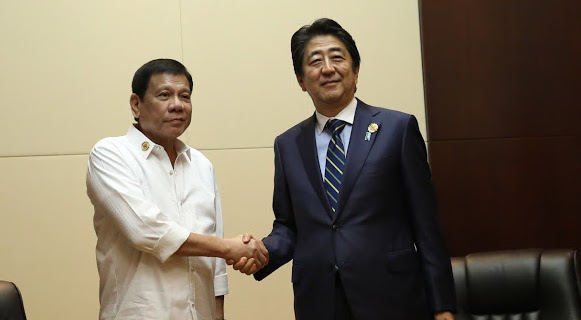A great many stereotypes about Japan persist in media and academic discourses about the country – some more accurate than others. One of the more firmly grounded is the idea that Japan occupies a tenuous position between entrapment and abandonment – a result of its geopolitical role in East Asia and its alliance with the United States. A long-standing consequence of this position is that it has been rare for Japan to take the lead on major foreign policy initiatives.
Over the past few years, however, Japan has broken with this stereotype – not only through taking a leadership role in the resurrection of the Trans-Pacific Partnership, but also in its undertaking of the Free and Open Indo-Pacific and its other assorted initiatives aimed at maintaining open trade and the rules-based order. This is a break with history that comes from sheer necessity; right now, Japan is the only Asia-Pacific state with the capability and intent to assume the mantle of the region’s champion of liberal values.
Outside of Tokyo, however, the Abe administration is receiving almost no credit for this. Part of the reason is that there is simply too much else going on in East Asia; between Trump, the inter-Korean dialogue, and China’s attention-grabbing initiatives, Japan’s relatively low-key work struggles to register outside of those circles that already follow its foreign and trade policy moves. Another aspect of the problem is that many pundits are unprepared to finally recognize that gaiatsu – foreign pressure – is a miserable framework for understanding Japanese foreign policy.
In spite of laudable initiatives elsewhere, the Abe administration continues to score foreign policy own-goals
The final piece of this puzzle is that in spite of its laudable initiatives in other areas of foreign policy, the Abe administration continues to score high-profile foreign policy own goals. The administration has embarrassed itself internationally by over-elevating historical issues like the various Comfort Women statues, has missed opportunities to speak out on humanitarian crises like the one that has unfolded in Myanmar, and has invited opprobrium by accepting an abysmally low number of Syrian refugees.
In the background of these failures to earn credit and attention for Japan’s foreign policy initiatives lies the fact that the administration finds itself dealing with a problem that hounds all liberal states – the inevitable tension between the state’s interests and the values it hopes to project. This tension means that when Prime Minister Abe courts Rodrigo Duterte of the strategically important Philippines, he also grants, whether he means to or not, legitimacy to a presidency whose violent and extralegal drug war has killed thousands.
Japan must reconcile this new contradiction between values and interests
Pointing out the gap between Japan’s stated intentions and the consequences of its actions is fair and warranted and can help keep Japan honest as it rises to a more direct leadership role in the region. It’s also correct to point out that there is more to liberalism than economics. Japan finds itself with a new contradiction that it must reconcile – no longer simply between entrapment and abandonment, but between values and interests.
This is a tension that can’t entirely be reconciled – other leaders of the international liberal order have struggled with these questions for decades – but is something that Japanese decisionmakers will need to grapple with if they want Japan to take a more assertive position in the region. The importance of demonstrating a commitment to liberal values, not just to economic interests, redoubles if Japan’s future position is to include an expanded defense role. Defusing and overcoming regional distrust of Japan’s military position can only be accomplished if the country makes very clear exactly which values, not assets or relationships, it intends to defend.
An earlier version of this article originally appeared in Tokyo Review’s newsletter, which is emailed directly to subscribers and includes a round-up of the best writing on Japan from our site and across the web, along with early access to this op-ed column. It’s free to subscribe, so sign up below!
Paul Nadeau is an adjunct assistant professor at Temple University's Japan campus, a visiting research fellow at the Institute of Geoeconomics, and an adjunct fellow with the Scholl Chair in International Business at the Center for Strategic and International Studies (CSIS). He was previously a private secretary with the Japanese Diet and as a member of the foreign affairs and trade staff of Senator Olympia Snowe. He holds a B.A. from the George Washington University, an M.A. in law and diplomacy from the Fletcher School at Tufts University, and a PhD from the University of Tokyo's Graduate School of Public Policy. He should be general manager of the Montreal Canadiens.






























